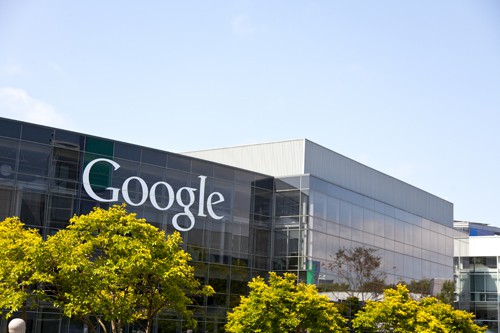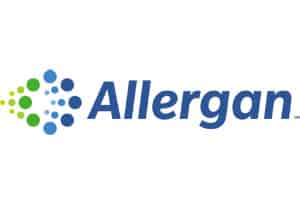 Gilead and Verily team up to map inflammatory diseases
Gilead and Verily team up to map inflammatory diseases
Gilead and Google’s life science and healthcare division Verily are to team up to identify and better understand the immunological basis of three common and serious inflammatory diseases.The three-year partnership will be the first large-scale deployment of Immunoscape, Verily’s platform for generating immunological data and insights. Read more here.
Celgene hires Dudinak to prevent any more regulatory blunders
Celgene suffered a highly embarrassing setback in February when the FDA refused to accept the filing of one of its most important new drugs, multiple sclerosis candidate ozanimod – and all because the company had failed to provide adequate non-clinical and clinical pharmacology data in its dossier.
The company has now moved to reassure investors that such a rudimentary and avoidable error won’t happen again, by hiring a new Senior Vice President of Global Regulatory Affairs.
Jennifer Dudinak has 20 years of experience in pharma regulatory affairs, and has been poached from her position as GSK’s Vice President and Head of Regulatory Affairs for the Pharma Therapeutic Team.
Dudinak has clearly been hired in a hurry, and started work yesterday, and will report to Jay Backstrom, MD, Celgene’s Chief Medical Officer.
She will oversee the firm’s regulatory strategy and execution across its portfolio and will serve on the company’s executive committee.
“Jennifer possesses deep regulatory expertise and has a proven record of leading highly-effective cross-functional teams,” said Jay Backstrom, MD, Chief Medical Officer of Celgene Corporation. “Jennifer will lead the regulatory strategy at all stages of our pipeline, which is essential to accelerate and expand our portfolio.”
The news comes just ahead of Celgene’s Q1 results, which it unveils on Friday. Dudinak’s appointment is a crucial element in CEO Mark Alles’ attempts to steady the ship after a tempestuous few months, where a run of bad news has seen its share price slip precipitously.
“Strengthening our regulatory affairs team is critical to our future success and is a top corporate objective at this stage of Celgene’s growth,” said Mark Alles. “Jennifer is an outstanding addition to Jay’s global leadership team and the executive committee.”
 Roche expands 4DMT partnership in gene therapies
Roche expands 4DMT partnership in gene therapies
The big pharma race to snap up the best cell and gene therapy partners is most definitely on, and Roche doesn’t want to be left behind.
The company has today announced an expanded partnership with Emeryville, California-based 4D Molecular Therapeutics (4DMT), which specialises in adeno-associated virus (AAV) gene therapy vector discovery and product development.
The companies signed a research deal back in 2016, but Roche hadn’t seen it as a priority. However the arrival of companies such as Spark and its FDA-approved Luxturna, and the major investments and long-term partnerships forged by its big pharma rivals such as Novartis and Pfizer, has changed all of that.
Roche and 4D have now upgraded the alliance into a broad, long-term partnership to develop and commercialise multiple products in ophthalmology, which is emerging as one of the key areas of interest in cell and gene therapy.
4DMT’s intravitreally-delivered clinical candidate, 4D-110, is the first collaboration programme, and is for choroideremia (CHM) an inherited form of ‘night blindness’ which can occur in early childhood.
This is the same disease being targeted by UK-based cell and gene therapy Nightstar, whose candidate is already in phase III.
4DMT is at a much earlier stage, however, and is just launching IND-enabling studies and activities. It also has other clinical candidate development programmes underway to treat retinal diseases with high unmet need.
“The decision to expand our partnership represents validation of our ophthalmology platform, clinical candidates and team,” said David Kirn, MD, CEO and co-founder of 4DMT.
4DMT says its AAV platform is superior to rivals, as these are generally based on one of a few “naturally-occurring” or “wild-type” AAV vectors, meaning they were found in nature (eg as laboratory contaminants or as monkey infections).
It says that while these are generally safe and well-tolerated in patients, they do not have targeted or optimised delivery properties and often require aggressive and/or invasive injections at high doses to attempt the desired transduction of target cells in the body.
The company claims its Therapeutic Vector Evolution platform can produce novel customised and proprietary products designed for therapeutic gene delivery in humans.
 Allergan takes $535m hit after Vitae failure
Allergan takes $535m hit after Vitae failure
Allergan revealed yesterday that it is writing off its psoriasis candidate VTP-43742, acquired via its $640m acquisition of Vitae Pharmaceuticals in 2016.
The company has recorded a $535m impairment charge, wiping out most of the Vitae deal’s value, struck at the height of a fevered period of acquisitions and deals at Allergan.
Despite this embarrassing failure, yesterday’s Q1 results were encouraging, with revenues up 2.8% thanks to growth in Botox, Vraylar and regenerative medicines. This helped Allergan to beat analyst expectations and also slightly raise earnings forecasts for the year.
Nevertheless, the company is facing growing generic competition, and CEO Brent Saunders told analysts that a number of strategic options, including a large-scale share repurchase, divestments or acquisitions are all being considered to boost its position. Saunders did, however, distance himself from talk of a large merger, including the briefly mooted but poorly received idea of pursuing Shire.




